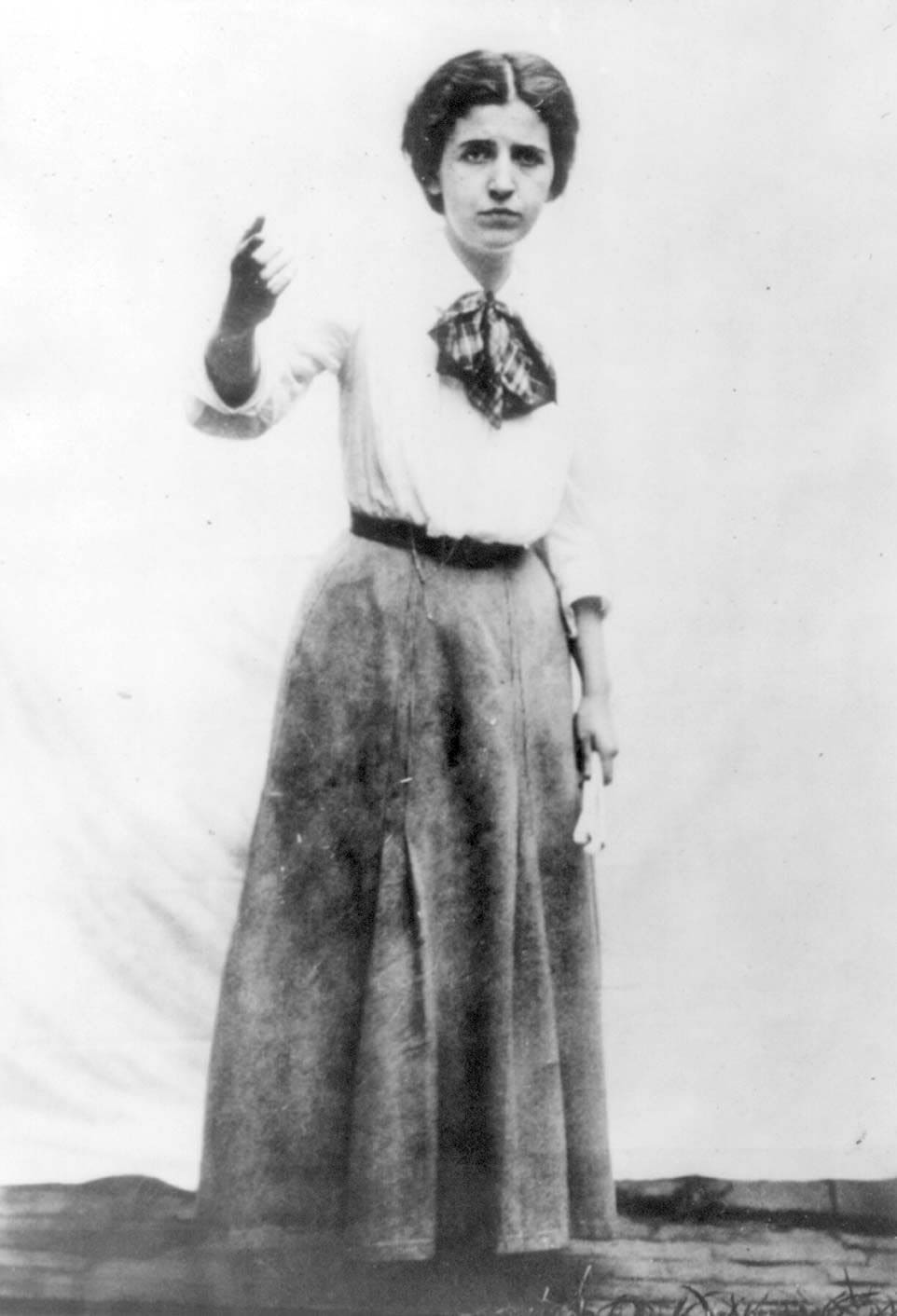A Woman You Should Know: Elizabeth Gurley Flynn (1890-1964)
A Woman You Should Know: Elizabeth Gurley Flynn (1890-1964)
By Kelly Florence

George Grantham Bain Collection/Library of Congress, Washington, D.C. (Digital file no. cph 3a48983)
Elizabeth Gurley Flynn was a labor organizer, author, and speaker that traveled all over the country helping to organize workers into unions. She traveled to the Iron Range in Minnesota to help organize miners in the strikes of 1907 and 1916. She may have been considered controversial but her life and the time period in which she lived explains the differing views of her. Flynn was born in 1890 in Concord, New Hampshire. She was of Irish descent and grew up aware of her ancestor’s struggles for freedom. She suffered from discrimination because of her ethnicity but her mother always made sure she was respectful of other people’s nationality, language, and religion. Growing up, she saw people’s struggles for better living and working conditions and for better education. In one town where she lived she saw children, not much older than she was, having to work in mills to support their families. Some of them were forever scarred or maimed because of the lack of safety regulations in the workplace. This had a tremendous impact on her.
Flynn’s family struggled to make ends meet and being the oldest child, she ended up sharing in the miseries and worries of her parents. According to her autobiography, Rebel Girl (1973), her mother read a poem to her that inspired her because it seemed to speak to her family’s situation:
When Earth produces free and fair the golden waving corn,
And golden fruits perfume the air and fleecy flocks are shorn,
Yet thousands cry with aching head the never-ending song,
“We starve! We die! Oh give us bread!”
There must be something wrong!
Flynn saw the labor movement as a way out of poverty and began attending meetings, listening to speakers, and reading books and poems about it. She started public speaking when she was only sixteen-years-old about the women’s right to vote and other topics and started to become well known.
She joined the Industrial Workers of the World because it was an organization that fought for the needs of the poorest, most exploited, and most oppressed workers. She first traveled to Minnesota’s Iron Range in 1907 when she was seventeen-years-old, got off the train in Duluth, and was met by a representative. His name was Jack Jones and they really hit it off, marrying the following year. They lived in Duluth for a while and Flynn’s work took her all over the United States. She organized campaigns for garment workers in Pennsylvania, silk weavers in New Jersey, restaurant workers in New York, miners in Montana and Washington, and textile workers in Massachusetts. In 1916 a strike involving around sixteen thousand iron-ore miners on the Iron Range brought Flynn back to Minnesota where she rode around in an old bakery truck to get to meetings. She made an impact not only in Minnesota but across the United States. She died in 1964 and left behind a legacy that filmmakers, authors, and song writers are still inspired by.












